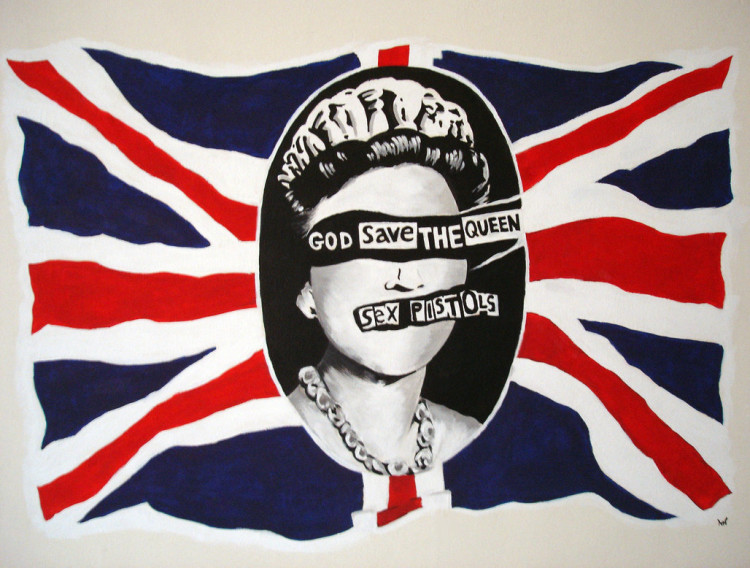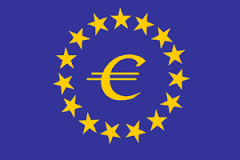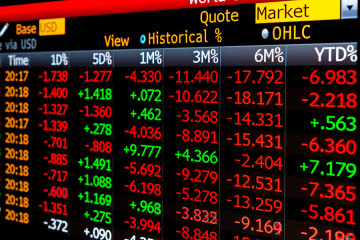Emerging-Market Assets Rally on Signs Britain to Remain in EU

published Jun 20th 2016, 3:45 pm, by Maria Levitov
(Bloomberg) —
Emerging-market assets rose for a second day on signs the campaign for the U.K. to stay in the European Union was gaining momentum.
South Africa’s rand led a rally in developing currencies after a poll showed the campaign for the U.K. to remain leading by three percentage points before the referendum on Thursday. Stocks from Sao Paulo to Moscow advanced as Brent crude sold for more than $50 a barrel. Nigeria’s currency plunged after the central bank allowed it to float freely, scrapping a 16-month peg. India’s rupee declined after central bank Governor Raghuram Rajan said he’d step down when his term ends in early September.
Business leaders including Richard Branson and U.K. Prime Minister David Cameron intensified campaigning for Britain to stay after momentum toward a so-called Brexit sparked a rush out of riskier assets last week. Bookmakers’ odds suggest the chances of a ‘Leave’ vote have faded since the murder of pro-European lawmaker Jo Cox last week. The EU’s eastern economies including Poland and Hungary stand to lose financial support from a British pullout.“Emerging-market assets will be fully focused on the probabilities of Brexit until we have the final results on Friday morning,” said Simon Quijano-Evans, chief emerging-market strategist at Commerzbank AG in London, who downgraded bonds of Poland, Hungary and Croatia in April on Brexit risks. “Net commodity-exporting currencies have been trading fully in line with oil-price action, with oil now following the whims of global growth and thus any Brexit scenario. It all boils down to democracy in the end.”
Campaigning in the U.K. restarted Sunday after being suspended for 2 1/2 days following the killing of Cox, a prominent member of the Remain group.
For a quick view on recent Brexit surveys, click here
The MSCI Emerging Markets Currency Index rose 0.8 percent, taking its two-day gain to 1.2 percent. The gauge had dropped 1.4 percent over the previous six days on signs the U.K. leaving the EU was becoming more likely.
The rand strengthened 2 percent, while Russia’s ruble and the Colombian peso each rose more than 0.9 percent. The People’s Bank of China raised the yuan’s fixing by 0.13 after reducing it by 0.31 percent last week.
The rupee declined 0.3 percent after Rajan’s weekend announcement that he will be stepping down. Since taking office in 2013, the former International Monetary Fund chief economist helped strengthen the rupee, cut its swings by more than half and propelled the nation’s foreign-exchange reserves to an all-time high.
For a Gadfly commentary on the impact of Rajan’s departure, click here
The naira fell 30 percent to a record 282.5 per dollar. Nigeria, Africa’s second-biggest oil producer after Angola, has come under increasing pressure to stop managing its currency after oil prices slid 56 percent in the past two years. Kazakhstan, Azerbaijan and Argentina all shifted to freely floating currency regimes last year.
The Hungarian forint, Polish zloty and Romanian leu all gained at least 0.1 percent against the euro on prospects the U.K.’s continued membership in the EU will protect development funds to their economies.
Stocks Rally
The MSCI Emerging Markets Index rose 1.9 percent to 821.17 following 0.8 percent gain Friday. The Hang Seng China Enterprises Index of mainland stocks listed in Hong climbed 1.8 percent. Turkish equities advanced 2.8 percent. Brazil’s Ibovespa jumped 1.6 percent. Markets in South Korea and Hungary advanced at least 1.2 percent.
India’s S&P BSE Sensex gauge rose 0.9 percent as markets absorbed the Brexit polls in the U.K. and the government eased local sourcing requirements on retails after being down as much as 0.7 percent in early trading following the announcement of Rajan’s departure.
Polish bonds jumped on the Brexit polls, pushing the yield on 10-year securities down nine basis points to 3.06 percent, the lowest since May 27. South African, Hungarian and Russian bonds also gained.
Societe Generale SA said on Friday it had cut holdings of Croatian, Hungarian, Polish and Romanian debt ahead of the Brexit vote. It advised clients to overweight Argentina, Mexico, Peru and the Philippines.
To subscribe to our referendum night live blog, click here
Korean debt fell, with the yield on 10-year notes rising four basis points to 1.65 percent.
–With assistance from Jung Park and Anuchit Nguyen. To contact the reporter on this story: Maria Levitov in London at mlevitov@bloomberg.net To contact the editors responsible for this story: Daliah Merzaban at dmerzaban@bloomberg.net Douglas Lytle, Richard Richtmyer
copyright
© 2016 Bloomberg L.P







No Comment